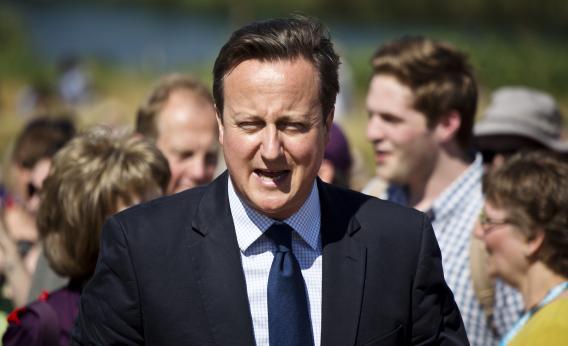The easiest problems in the world to solve are the ones that are already solved. Perhaps Prime Minister David Cameron already knows this, which is why he’s begun a war on Internet porn. (For the children!) But he’s fighting a war that’s already been won peacefully by parents, with weapons they’ve had for years.
Already, the United Kingdom’s top four ISPs offer opt-in porn filtering, but that’s not enough for Cameron, who has demanded search engines blacklist search terms that could possibly lead to pornography. New customers would have both of these “family-friendly” filters enabled by default, if Cameron gets his way.
The joke that searching for anything at all on Google Images will inevitably result in a pornographic hit is rapidly approaching retirement age. Now, we have SafeSearch. It’s an optional, on-by-default tool that is provided to us by our favorite search engines that makes sure that we’re only finding sexy naked teachers if we want to see them. Parents have even more tools at their disposal. Browser add-ons and standalone programs with blacklists of every porn site in existence (and many nonadult sites) are easy to find.
David Cameron, apparently, surfs the Web using Netscape Navigator 4.0 and Lycos, because he’s finding pornography everywhere. It’s a constant danger to his 11-year-old son, who can’t look up videos of people drinking tea without finding copious amounts of hot XXX action. Presumably this is a black mark on Cameron’s phone bill as well, as dial-up Internet gets very costly.
Take a look at protectingourchildren.co.uk, a URL that is not pandering in any way whatsoever. Front and center, it loudly proclaims: “Only 46% of parents have filters in place on their home Internet.” Forty-six percent. Almost one-half of all parents with Internet access have taken the step of researching porn-blockers and installed them. I find this number remarkable, and if not for the proposals Cameron is putting forth, I’d think it inflated.
That percentage says that user empowerment is working. It’s a number that says that British parents are solving their own problems, and that it doesn’t need the government to step in and start filtering the Internet. I’ve already written about how the U.K. government has routinely overstepped its bounds in terms of Internet surveillance. If U.K. citizens are doing a fine job of keeping their little Nigels and Maggies minds pure without their government’s help, why would they want to hand the reins to a government that engages in such overbroad activities?
